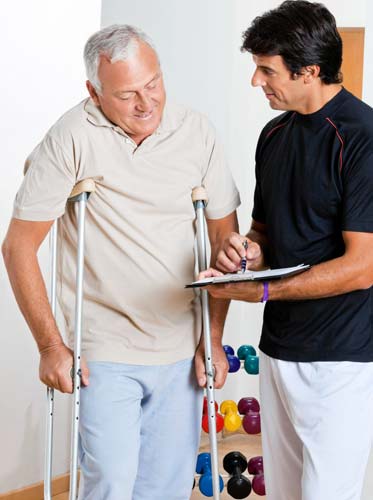A married man’s best friend is most often his wife and the older he gets, the more he comes to understand the wisdom and truth of that statement.
In my office, the first interview with a married man usually occurs with the wife present at the request of the patient himself. Very little escapes the vigilance of the devoted woman. If I ask the patient if his stream is slow or weak, he may answer, “It’s regular” and she interjects, “What are you saying? Doctor, he’s in the toilet for 10 minutes at a time.”
An inquiry about urinary leakage triggers how often she has to clean the toilet bowl and soiled underwear. When questioned about frequent urination, it’s the wife, who explains how often he beats a path to the bathroom, which keeps them both from enjoying a good night’s sleep. Questions about their intimate moments are frequently answered not with words but with a simple flick of her wrist, which effectively tells the story. And so on and on, each question brings out more and more of the truth.
Most wives want to hear two things; first that her husband does not have cancer and second that he does not need to go to the hospital for a risky surgical operation under general anesthesia. Happily, that is most often the case since the most common cause of the symptoms described above is benign prostate enlargement.
Benign means that the prostate is not cancerous and this condition most often does not require surgery.
Fortunately, there are two effective nonsurgical approaches available to relieve the symptoms of prostate enlargement. The first is the use of medication, which works well in most men, but must be taken for a lifetime, which therefore involves never-ending expense.
The drugs may lose effectiveness over a period of time and may actually be contraindicated in certain cases because of a variety of side effects or drug interactions. The side effects of these medications may include erectile dysfunction, allergic reactions, tender breast enlargement, muscle weakness and blurred vision.
So, if drugs are not an ideal solution for you, the next approach is to use the most popular, non-surgical, one-time 30-minute, FDA approved, office based microwave thermotherapy treatment known as TherMatrx. No anesthesia or hospitalization is used and patients go directly home from the office urinating on their own with no uncomfortable catheter or drainage bag.
So if you find yourself pushing to urinate, voiding more often than every two hours with a slow interrupted stream, not feeling empty or satisfied, suffering from sleep deprivation and rushing to the toilet to avoid leakage from urgency, listen very carefully to your wife when she tells you it is time to go to the urologist to check out these annoying symptoms, listen to her; remember, she is your best friend and is definitely looking out for you.
Have a Question? Call Dr. Okun at 718-241-6767
























